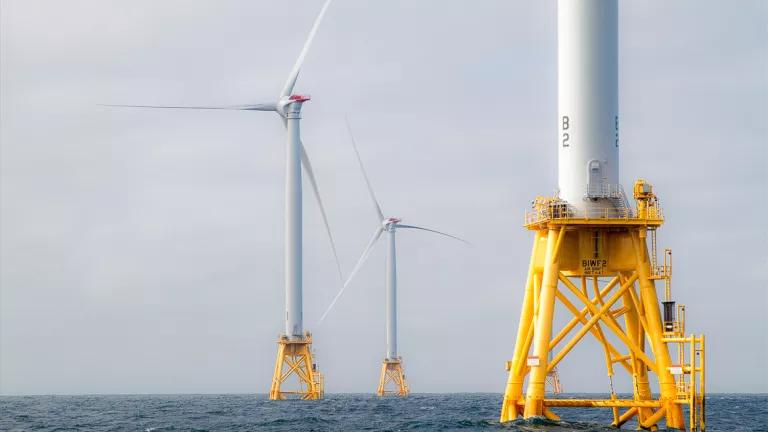U.S. Joins Crucial Kigali Agreement Phasing Down HFCs
The Senate gave the green light today for the U.S. to ratify the Kigali Amendment to the Montreal Protocol, the most effective environmental treaty ever. Kigali is a global agreement to phase down potent climate pollutants known as hydrofluorocarbons (HFCs) and ratifying it is a big win in the climate fight.

UPDATE: On Wednesday October 26, President Biden signed the Kigali Amendment papers, making the U.S. the 140th country to join the global pact to phase down HFCs.
The Senate gave the green light today for the U.S. to ratify the Kigali Amendment to the Montreal Protocol, the most effective environmental treaty ever. Kigali is a global agreement to phase down potent climate pollutants known as hydrofluorocarbons (HFCs) and ratifying it is a big win in the climate fight.
A bipartisan supermajority of 69 Senators voted in favor of the U.S. joining the Kigali Amendment. The agreement, originally struck in Rwanda’s capital in 2016, draws on decades of successful policy under the Montreal Protocol – the treaty that saved the ozone layer – to now phase down HFCs over the next two decades. The immense benefits for both the climate, job creation, and U.S. businesses brought together a broad coalition of supporters ranging from NRDC to the U.S. Chamber of Commerce, with political support from both sides of the aisle.
The U.S. joins 137 other countries, including China and India, that have ratified the Amendment. All these nations will meet the first week of November in Montreal, where the Montreal Protocol was signed 35 years ago (see David Doniger’s blog about that, here). Having ratified the Kigali Amendment, the U.S. will once again be a full partner in implementing this powerful ozone and climate protection treaty.
Though the U.S. ratified today, we are already meeting Kigali’s obligations. The U.S. phasedown kicked into gear with enactment of the bipartisan American Innovation and Manufacturing (AIM) Act in 2020, which directed the Environmental Protection Agency to cut HFC production and imports by 85% through 2036. As a result, the phasedown in the U.S. is well underway and will avoid the equivalent of more than 4 billion tons of CO2 by midcentury.
The climate benefits of phasing down HFCs are huge. HFCs are used in air conditioning units, refrigerators and other equipment, and are the fastest growing climate pollutants. Pound for pound, they are hundreds to thousands of times more powerful a climate pollutant than carbon dioxide. The global HFC phasedown under the Kigali Amendment will avoid adding the equivalent of more than 70 billion tons of CO2 by 2050. That’s equal to zeroing out the entire world’s heat-trapping pollution for two years. The phasedown will avoid adding nearly a half degree Celsius (one degree Fahrenheit) of warming by the end of the century. We cannot keep overall warming under 1.5 degrees or even 2 degrees Celsius if we let HFCs keep growing.
In addition to safeguarding the climate, U.S. participation in the global HFC phasedown benefits American manufacturing and jobs. HFCs are commonly used in air-conditioners and refrigerators, insulation foams, and aerosols. American firms have invested more than $5 billion in bringing safer alternatives to market, and in adapting air conditioners and other products to use them. By making the U.S. a full partner in Kigali, the Senate vote removes an obstacle for American companies competing for rapidly growing export markets for HFC alternatives and the products that use them. Without ratification of this crucial treaty, the U.S. industry, which has invested years of research and billions of dollars innovating suitable alternatives for HFCs, would have found itself locked out of growing export markets at the cost of hundreds of thousands of domestic jobs. Thankfully, sensible bipartisan cooperation has instead delivered a win for both the climate and U.S. industry.
Our work will continue. NRDC has worked on the Montreal Protocol since its inception 35 years ago, working with seven administrations from President Reagan to President Biden. And we know that proper implementation requires hard work to ensure robust implementation and timely updates of the treaty’s requirements.
Today marks another big win for climate protection.



